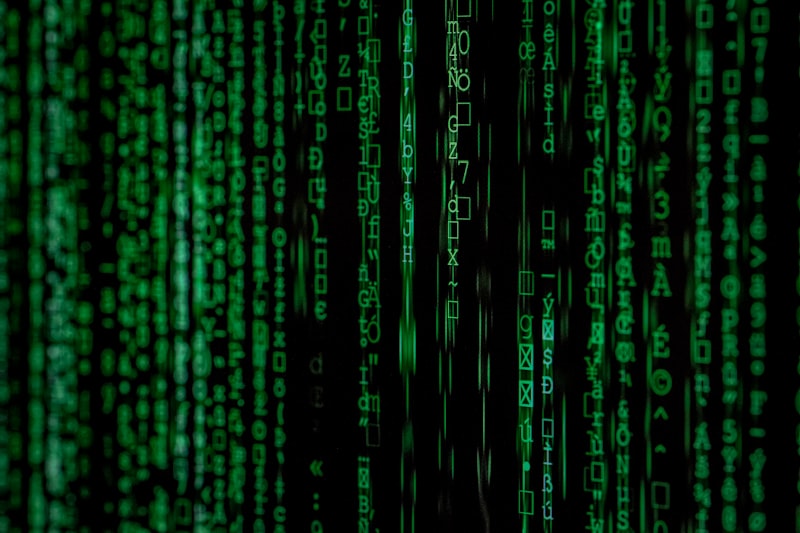Quantum Computers and Their Potential for a Revolution in Computing


Introduction:
Imagine a world where computers are not just faster, but exponentially more powerful, capable of solving complex problems that would take conventional computers centuries to crack. Welcome to the realm of quantum computers. These remarkable machines have the potential to revolutionize computing as we know it, unlocking doors to unprecedented possibilities. In this article, we will delve into the details of quantum computers and explore their immense potential for transforming various fields.
Unleashing the Power of Quantum Mechanics:
At the heart of quantum computers lies the mind-boggling world of quantum mechanics. Unlike classical computers that use bits to store and process information, quantum computers leverage quantum bits, or qubits. Qubits can exist in multiple states simultaneously, thanks to a phenomenon called superposition. Harnessing this property, quantum computers can perform vast calculations in parallel, leading to exponential speedups.
A Quantum Leap in Problem Solving:
Quantum computers excel at solving complex problems that plague classical computers. Take cryptography, for example. The encryption algorithms that safeguard our digital transactions could be swiftly cracked by quantum computers, rendering current security measures obsolete. On the other hand, quantum computers offer immense potential for optimizing logistics, predicting weather patterns, and simulating molecules for drug discovery. These machines hold the key to unlocking breakthroughs in physics, chemistry, and material science.
Challenges on the Quantum Horizon:
While the promise of quantum computers is undeniably enticing, there are formidable challenges to overcome. One such hurdle is maintaining qubits’ delicate quantum state, prone to interference from environmental factors. Scientists are actively pursuing solutions like error correction codes and better qubit designs to enhance stability and reduce errors. Additionally, quantum computers require extremely low temperatures, making them highly sensitive machines that demand sophisticated control and isolation techniques.
Collaboration for Quantum Advancement:
The quest to harness quantum computing’s full potential calls for collaborative efforts across academia, industry, and governments. Leading tech companies, research institutions, and governments worldwide are investing heavily in quantum research and development. Governments are also focusing on building quantum-resilient encryption systems to counter potential security threats arising from quantum computers.
Conclusion:
Quantum computers hold immense promise for transforming the world of computing, opening up new frontiers in science, technology, and innovation. As scientists continue to push the boundaries of quantum mechanics and overcome technical challenges, we can anticipate a future where quantum computers revolutionize industries, tackle complex problems, and reshape our understanding of the universe. The possibilities are awe-inspiring, and the quantum computing revolution is just beginning.
Unlocking the Future: Quantum Computers Poised to Revolutionize Computing
Hey there! Have you ever wondered what the future holds for computing? Brace yourself, because quantum computers are here to shake things up and revolutionize the way we solve complex problems. Get ready to dive into a fascinating world where traditional computers take a back seat, as quantum computers prepare to take the stage.
So, what exactly is a quantum computer? Well, it’s not your everyday laptop or desktop machine. Quantum computers leverage the mind-boggling principles of quantum mechanics, allowing them to process information in ways that were once considered impossible. Instead of using traditional bits, which are either 0s or 1s, quantum computers use quantum bits, or qubits. These qubits can exist in multiple states simultaneously, thanks to a phenomenon called superposition. It’s like having multiple answers to a question all at once!
One of the most exciting aspects of quantum computers is their immense processing power. Unlike classical computers that perform calculations sequentially, quantum computers harness parallelism, enabling them to simultaneously explore numerous possibilities. This ability opens doors to solving complex problems much faster than traditional computers ever could. From optimizing logistics and cryptography to simulating chemical reactions and weather patterns, quantum computers have the potential to transform our world across various industries.

But don’t get too carried away just yet. Quantum computing is still in its early stages, facing several challenges on the road to practical implementation. One significant obstacle is maintaining the delicate state of qubits, known as quantum coherence. Even the tiniest environmental disturbances can disrupt this delicate balance, leading to errors in calculations. Scientists and engineers are tirelessly working on developing error-correcting techniques and more stable qubit architectures to overcome these hurdles.

Despite the challenges, the progress in quantum computing is remarkable. Major tech companies, such as Google, IBM, and Microsoft, along with research institutions, are investing heavily in this transformative technology. Quantum computers are poised to unlock unprecedented computational power, revolutionizing industries like drug discovery, financial modeling, and optimization.
The future of computing is at our doorstep, and it’s quantum! These extraordinary machines hold the potential to revolutionize the way we solve complex problems and tackle some of society’s most pressing challenges. While there are hurdles to overcome, the progress being made in quantum computing is awe-inspiring. So, fasten your seatbelts and get ready for a mind-bending journey into the realm of quantum computers. The possibilities are truly infinite!
Quantum Leap: How Quantum Computers Are Transforming the Computing Landscape
Imagine a world where computers can solve complex problems at an unimaginable speed, revolutionizing industries and transforming our daily lives. Welcome to the era of quantum computers, where traditional computing is taken to a whole new level. In this article, we will delve into the fascinating realm of quantum computing and explore how it is reshaping the computing landscape.
So, what exactly is a quantum computer? Unlike classical computers that use bits to represent information as 0s and 1s, quantum computers employ quantum bits or qubits. These qubits can exist in multiple states simultaneously, thanks to a property called superposition. It’s like having a coin that can be both heads and tails at the same time. This unique behavior enables quantum computers to perform computations in parallel, providing an exponential increase in processing power compared to their classical counterparts.

The impact of quantum computing spans across various domains, from cryptography and drug discovery to optimization problems and artificial intelligence. One of the most notable applications is in cryptography, where quantum computers have the potential to break traditional encryption algorithms. This has spurred the development of post-quantum cryptography, which aims to create encryption methods resistant to quantum attacks.
Additionally, quantum computers are poised to revolutionize drug discovery by simulating molecular interactions with remarkable precision. This could significantly accelerate the development of new drugs, leading to more effective treatments for diseases. Furthermore, optimization problems, such as route planning and resource allocation, can be solved faster using quantum algorithms, offering tremendous advancements in logistics and supply chain management.
The journey towards practical quantum computers is still ongoing, with many challenges to overcome. Quantum systems are extremely delicate and prone to errors caused by noise and decoherence. Scientists and engineers are actively working on error correction techniques and developing robust qubit technologies to build reliable quantum computers.
The advent of quantum computers marks a quantum leap in the computing landscape. With their immense processing power and the ability to tackle complex problems, these futuristic machines hold the potential to revolutionize industries ranging from finance and healthcare to energy and transportation. As researchers continue to push the boundaries of quantum computing, we can anticipate exciting breakthroughs that will reshape our world in ways we never thought possible.
Changing the Game: How Quantum Computers Could Reshape Industries
In this fast-paced digital era, technological advancements continue to push boundaries and revolutionize the way we live and work. One such groundbreaking innovation that has been making waves is quantum computing. With its immense potential, quantum computers have the power to reshape industries as we know them. But what exactly are quantum computers, and how can they change the game?
Quantum computers are a new breed of supercomputers that harness the principles of quantum mechanics to perform computations at an unprecedented speed and scale. Unlike classical computers that operate with bits, which represent either a 0 or a 1, quantum computers use quantum bits, or qubits, which can exist in multiple states simultaneously. This unique characteristic, known as superposition, allows quantum computers to process vast amounts of information simultaneously, leading to exponential computational power.
The implications of this technology are profound. Imagine solving complex problems that are currently beyond the reach of classical computers. From cryptography and drug discovery to optimization and artificial intelligence, quantum computers offer unparalleled capabilities. They can break encryption algorithms, enabling the development of virtually unhackable security systems. They can simulate molecular structures, accelerating the discovery of new drugs and materials. They can optimize logistical operations, improving supply chains and transportation networks. The possibilities are truly awe-inspiring.
Industries across the board stand to benefit from quantum computing. Finance and banking can leverage quantum algorithms to enhance risk analysis and portfolio optimization. Healthcare can tap into the immense processing power to expedite the diagnosis and treatment of diseases. Energy sectors can optimize power grids and advance renewable energy solutions. Even artificial intelligence can take a giant leap forward with quantum machine learning algorithms.
However, the path to widespread adoption of quantum computers is not without challenges. Quantum systems are extremely sensitive to noise and decoherence, making their stability and error correction critical areas of research. Additionally, the hardware required for quantum computing is still in its infancy, making it expensive and limited in availability. Overcoming these obstacles will be crucial for unlocking the full potential of quantum computers.
The advent of quantum computers has the potential to revolutionize industries across the globe. Their unrivaled computational power opens up new frontiers in solving complex problems and propels us into a future where unimaginable possibilities become reality. As research and development continue, we eagerly await the day when quantum computers change the game for good, transforming the world as we know it.
Breaking Barriers: The Promising Potential of Quantum Computing
Are you ready to dive into the exciting world of quantum computing? Brace yourself for a mind-bending journey that has the power to revolutionize our technological landscape. In this article, we’ll explore the awe-inspiring potential of quantum computing and how it could unlock new frontiers in various fields.
Quantum computing is not just an incremental improvement but a paradigm shift in computational power. Traditional computers employ bits, represented by either 0s or 1s, as the basic units of information. However, quantum computers utilize quantum bits, or qubits, which can exist in multiple states simultaneously thanks to a phenomenon called superposition. This means that a qubit can represent both 0 and 1 at the same time, exponentially increasing computational possibilities.

Imagine being able to solve complex problems that are currently beyond our reach. Quantum computing has the potential to crack cryptographic codes, optimize logistics and transportation routes, simulate molecular interactions, and even enhance artificial intelligence algorithms. It’s like having a supercharged engine for problem-solving that can tackle challenges previously deemed insurmountable.
But how does quantum computing achieve such astounding capabilities? It harnesses another fundamental principle of quantum mechanics called entanglement. Through entanglement, qubits become intricately linked, enabling information to be instantaneously communicated across vast distances. This phenomenon opens up avenues for secure communication networks and could lead to unbreakable encryption methods, safeguarding sensitive data in an era where cybersecurity is paramount.
However, we must acknowledge the current limitations of quantum computing. Building stable and reliable qubits presents considerable challenges, as they are prone to environmental interference and decoherence. Researchers worldwide are tirelessly working to overcome these obstacles, and advancements are being made each day. As technology progresses, we inch closer to fully harnessing the immense power of quantum computers.
Quantum computing holds tremendous promise in transforming the way we solve complex problems. Its potential applications span industries such as finance, healthcare, aerospace, and more. While we are still in the early stages of realizing its full potential, quantum computing has already demonstrated its ability to break barriers once thought impenetrable. The future is bright, and as we continue to push the boundaries of what’s possible, quantum computing is poised to redefine our world in ways we can only begin to imagine.




